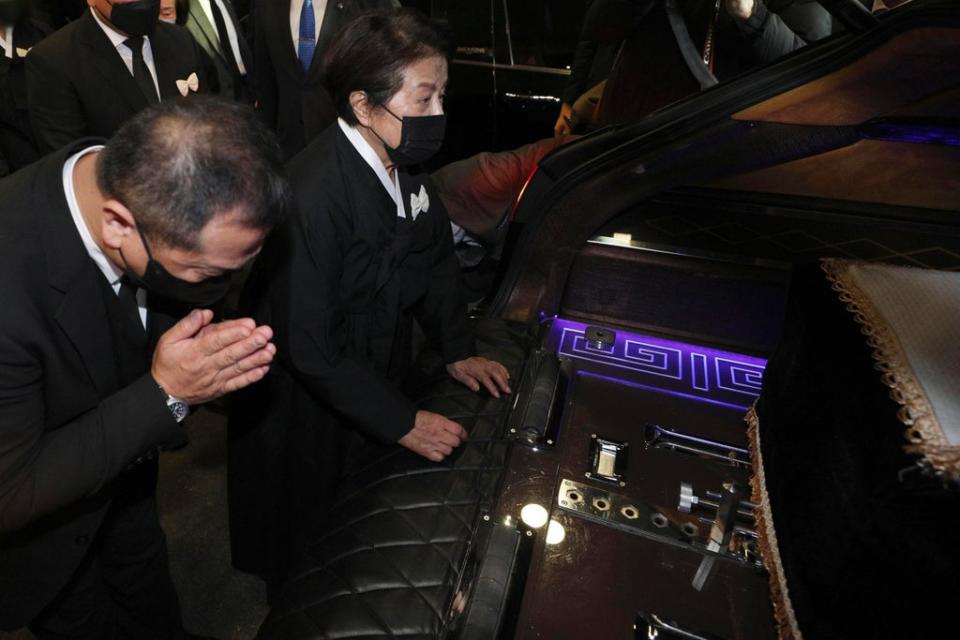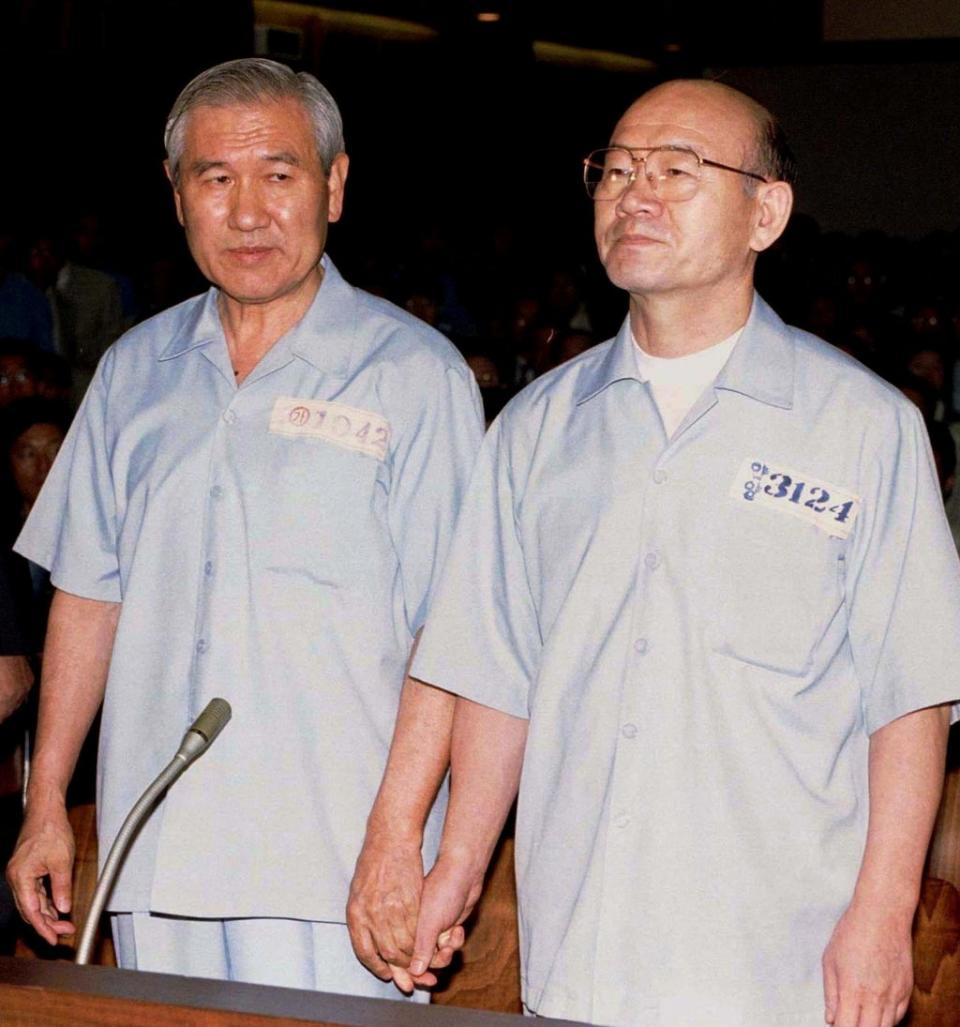Widow of South Korea’s last dictator offers ‘deep apology’ for husband’s brutal rule

The widow of South Korea’s last military dictator issued an apology for the “pains and scars” caused by her husband’s rule.
Lee Soon-ja, whose husband Chun Doo-hwan died at the age of 90 on 23 November, said on Saturday that she was “deeply sorry” for the alleged atrocities committed during his brutal dictatorship, but neglected to specify them and was roundly criticised for doing so.
Chun had seized power in a 1979 coup, after which he oversaw a brutal massacre of hundreds of pro-democracy activists in the city of Gwangju in 1980.
Ms Lee spoke on the final day of a five-day funeral procession, attended by relatives and former aides, for her husband.
“As we wrap up the funeral procession today, I would like to offer a deep apology on behalf of our family toward the people who suffered pains and scars during my husband’s time in office,” said Ms Lee at Seoul’s Severance Hospital before cremating her husband’s ashes at a memorial park.
The apology, however, has not gone down well with critics, who pointed out that the words meant little to heal the fallout that had emerged out of the massacre and the actions of the brutal regime.
Chun had never apologised for the massacre and had, even after his rule had ended, caused several controversies in the latter part of his life.
He had caused a nationwide furore in 2003 after claiming to have total assets of 291,000 won ($245) of cash, two dogs and some home appliances, while owing the state billions in fines.

It was also found that his four children owned vast swathes of land in Seoul and luxury villas in the US.
Ms Lee, during the ceremony, claimed to have recalled her husband saying “all things were due to my fault and my lack of virtue,” according to the Yonhap news agency.
Cho Jin-tae, a senior official at a foundation representing Gwangju’s victims, however, was quoted as saying that the comments were “meaningless remarks uttered out of courtesy.”
He told the Associated Press that the family, to back up Ms Lee’s “deep apology”, ought to participate in truth-finding efforts into Chun’s wrongdoings.
Similarly, Lee Jae-myung, a former civil rights attorney and current presidential candidate for elections to be held in March 2022, dismissed the widow’s remarks, saying she “insulted the citizens of Gwangju and our people.”
He attacked Ms Lee for explicitly including her husband’s “time in office” in her remarks and questioned if she deliberately excluded the Gwangju victims from her apology.
While the coup had occurred in 1979, it was only in September 1980 that Chun had officially called himself the head of state, months after the Gwangju killings in May.
A former, unnamed aide to Chun, was also quoted by Yonhap, that “[Ms Lee] did not make the remarks in regards to the May 18 uprising.”
“During his presidency, there were students who were tortured to death by police,” he said, in a reference to Chun’s brutal military rule.
Chun’s death came just a month after his coup co-conspirator and subsequent South Korean president Roh Tae-woo died on 26 October.
Roh had played an important but controversial role in transitioning the country to democracy.
Chun, when he was put on trial during the mid-1990s, had remained unapologetic, saying he was “sure that I would take the same action, if the same situation arose.”
Even though Roh was given a lengthy jail term and Chun was sentenced to death, they were both pardoned and freed from jail in 1997 by former president Kim Young-sam.
Additional reporting by Associated Press
Read More
China hypersonic weapons advancement is ‘increasing tensions,’ US says
South Korea reports five omicron cases on flight from Nigeria
South Korea could ban dog meat
South Korea could be set to ban ‘outdated habit’ of eating dog meat
South Korea sets pandemic high with 4,000 new virus cases
China protests passage of US destroyer through Taiwan Strait

 Yahoo Finance
Yahoo Finance 